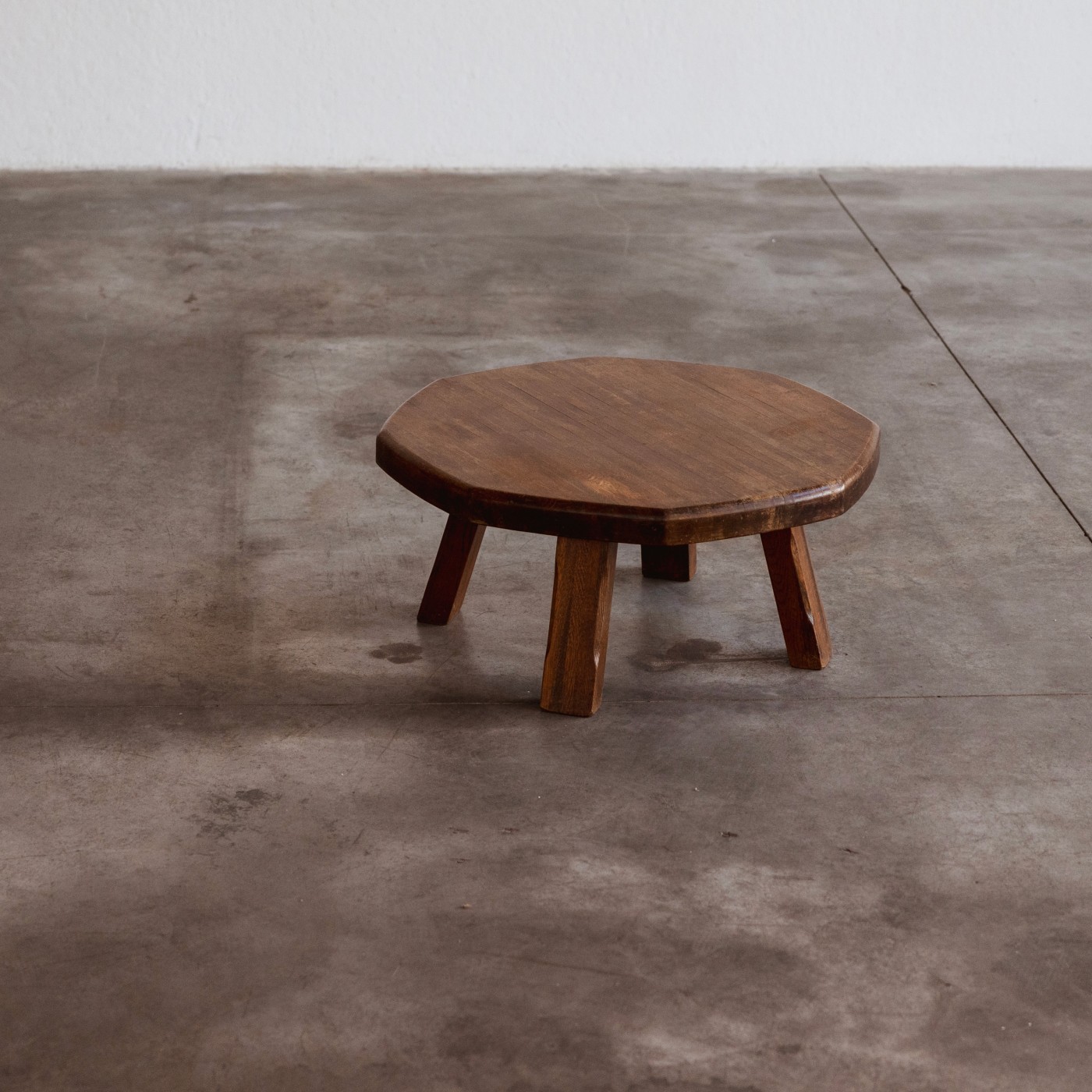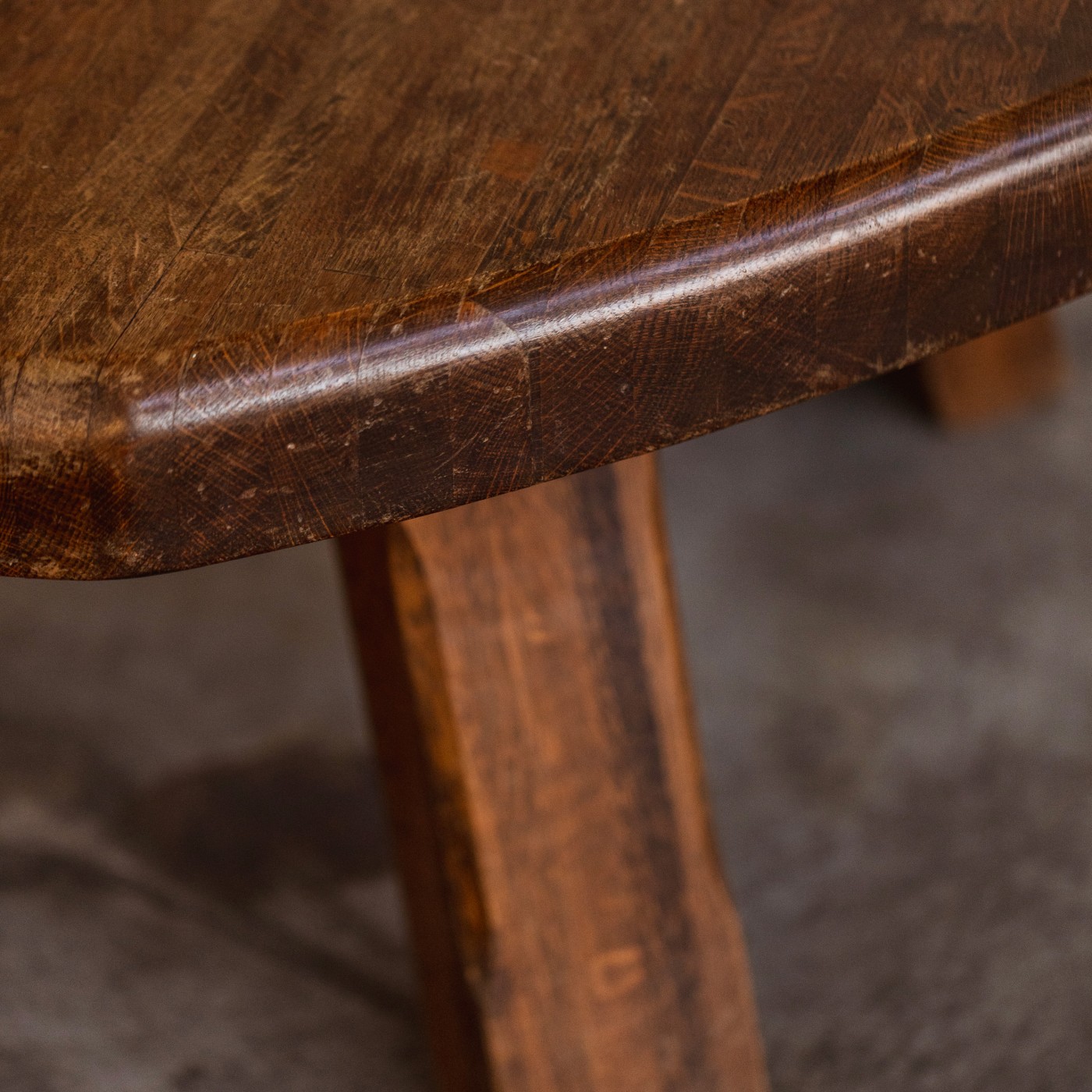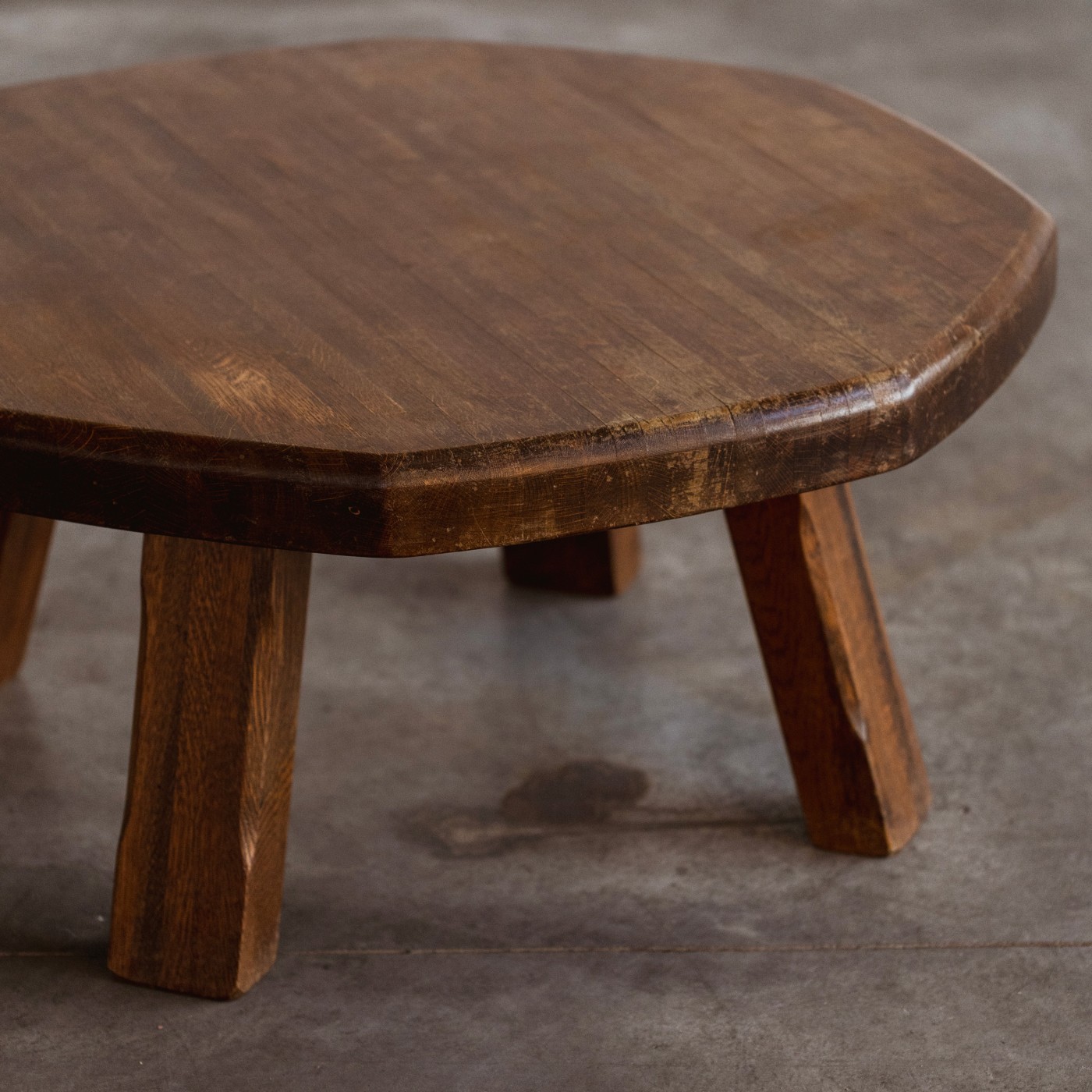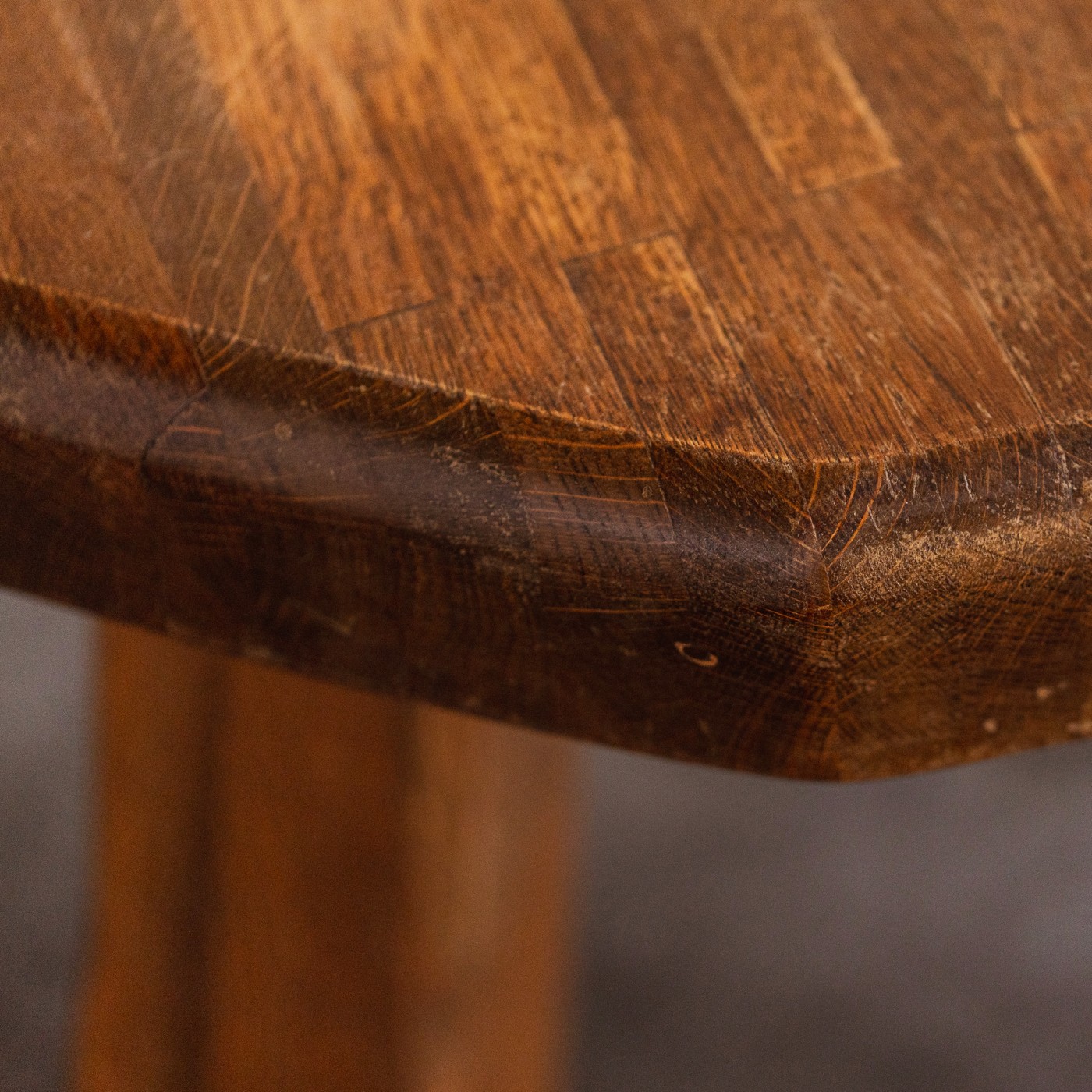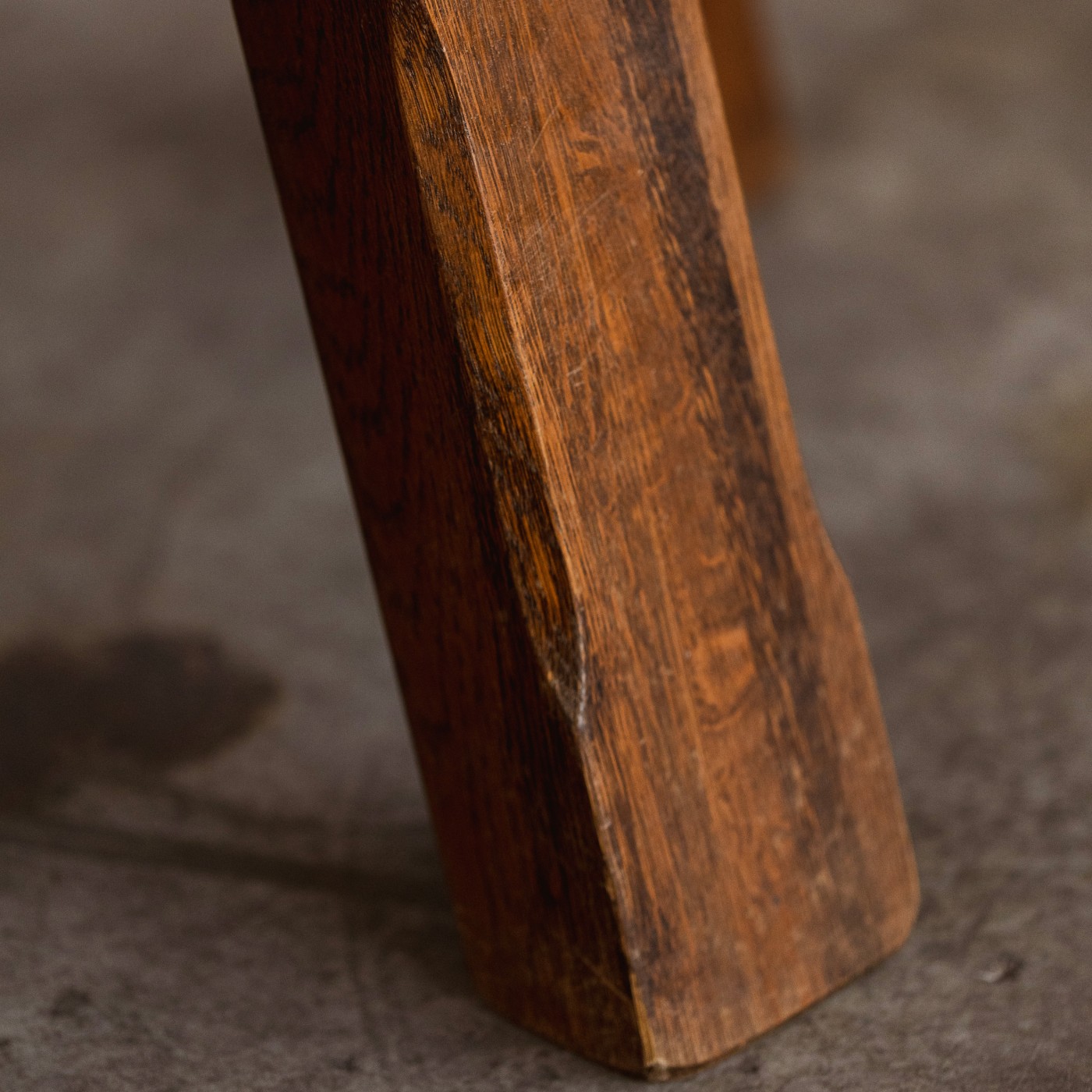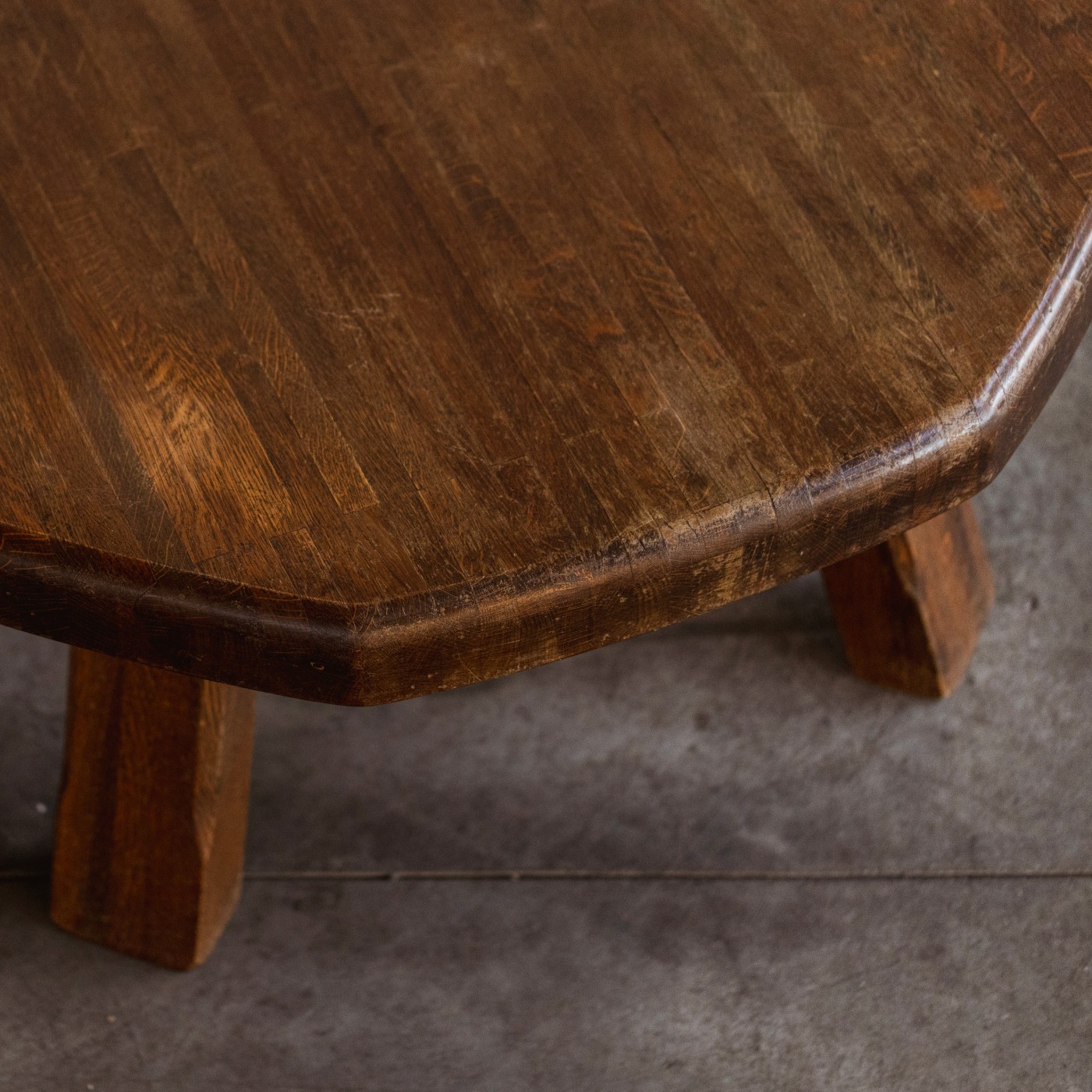Olavi Hanninen primitive coffee table for Aranjou, 1960
Description
Olavi Hanninen primitive coffee table for Aranjou, Wood, France, 1960
This solid wood coffee table, attributed to the French producer Aranjou, showcases a bold, brutalist aesthetic with influences from Pierre Chapo, Olavi Hanninen, and Dittmann & Co. The octagonal plank-style tabletop, crafted from stained elm, emphasizes natural grain variations. Four outward-angled rectangular legs feature subtle mid-height corner flat cuts, adding geometric detail. The structured composition highlights precision joinery, characteristic of mid-century French craftsmanship.
Many brutalist designs favor rigid, industrial materials but this table retains warmth through its hand-worked timber. The raw surface finish enhances the material’s depth, allowing the wood’s natural imperfections to shape the table’s visual weight. French woodworking traditions, seen in Guillerme et Chambron’s sculptural forms and Pierre Chapo’s architectural assembly techniques, inform the balance between mass and negative space.
This table’s design language recalls tribal furniture traditions, where function and material dictate form without ornamentation. The weight and proportions suggest inspiration from medieval trestle tables, adapted to mid-century proportions. The octagonal plank assembly, rarely seen in European production furniture, reinforces structural force while introducing a layered texture, uncommon in brutalist designs.
Aranjou’s contributions to mid-century French furniture remain largely undocumented, making this piece a rare study in the evolution of regional craftsmanship. Unlike the modular, industrial approach of Scandinavian makers, French artisans preserved a tactile relationship with wood, resulting in a table that is both sculptural and architectural. This table bridges primitive and modernist influences, positioning it as a distinct expression of material-driven design.
Dimensions
Height: 18.12 in (46 cm)
Width: 37.8 in (96 cm)
Depth: 38.19 in (97 cm)
Design
1960
Manufacture
1960-1969
Material
Wood
Location
Italy
